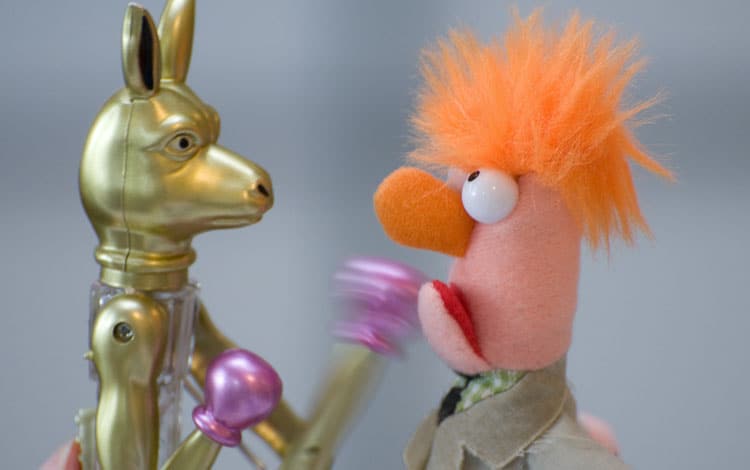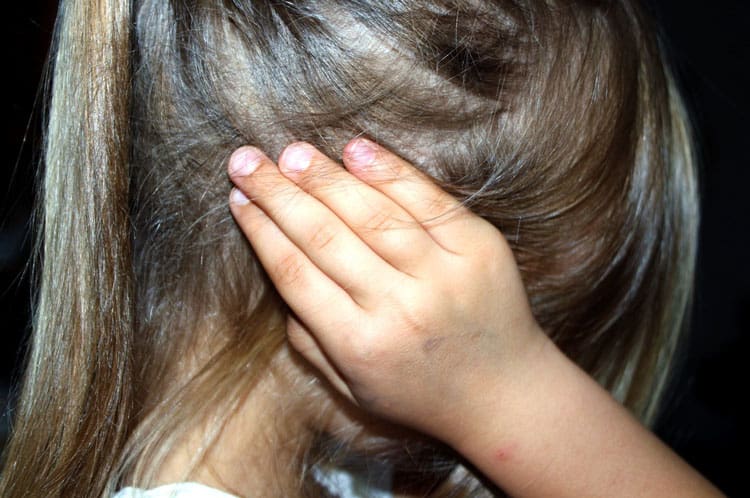Are your little roommates pushing your limits? Being a parent isn’t easy, and the toddler years can especially be a beast. One minute they’re snuggly and giggling like you are all stars on the set of a Hallmark family movie, and then in the blink of an eye these emotional little beings can turn on you and test your patience like it has never been tested before.
Disciplining toddlers requires a fine balance between patience and firmness. Any child development expert will tell you that children in their toddler years are gaining independence, getting their own ideas, and beginning to test boundaries…and they are definitely going to let their parents know it!
Naughty toddler behavior runs the gamut from mild disobedience all the way to biting, hitting and throwing temper tantrums in the grocery store. But don’t abandon that cart just yet! The good news is that there are some effective strategies that can help curb outbursts and redirect your little one’s behavior so that you can navigate through these years one thoughtful step at a time.
Why do toddlers have tantrums?

Toddler meltdowns are caused mainly out of frustration or being upset. They can happen out of tiredness, hunger, or being uncomfortable in some way. Temper tantrums (and crazy toddler behavior in general) might feel personal, but rest assured it’s all a completely normal part of those early years.
Just try to imagine what it’s like in their little heads for a minute, and how it must feel to have BIG toddler feelings/needs that literally can’t be communicated because they can’t speak fluently or effectively yet. It’s the perfect recipe for a freak out! Finding effective ways to discipline your toddler surely begins with a little empathy.
It’s also important to take a hard look at your own behavior in the moment, and how your parental response might be playing a role. We can all benefit from recognizing the imperfections of our own childhood and upbringing; it’s hard to stop doing something a certain way when that’s the only way you’ve seen it done, even if you know it’s not the best way! Make it a point to try and avoid repeating any harmful behaviors that you may have experienced yourself.
Handle aggressive behaviors calmly and firmly.

Let’s start with the classic attention-seeker practiced by toddlers worldwide—hitting. Toddlers often engage in aggressive behaviors like hitting (and biting, pinching, kicking, you name it!) as a form of expression when they don’t have the words or social skills to express their feelings of anger or frustration.
According to Psychology Today, an aggressive child (1-3 years of age) is not being ‘bad’ or disobedient. They are trying to tell you something, but haven’t yet developed the language skills or emotional habits to communicate effectively. Either that, or they don’t feel like they are being listened to, and violence is the only way to get your attention. And that it does!
Although it is generally just a phase that most toddlers grow out of, it is still important to try to correct and/or curb this unwanted behavior. Setting limits is essential so behavior doesn’t get out of hand. Here are some tips for disciplining toddlers who are overly physical.
Top strategies to curb unwanted behavior:
- Don’t hit, spank or slap your child. Physical punishment reinforces the aggressive behavior that you are trying to discourage. Kids learn from parents’ behavior, so displaying aggression shows your child that this behavior is acceptable. This is the polar opposite of what you are trying to teach.
- Don’t punish your child. Instead, focus on providing positive reinforcement or simple redirection as opposed to labeling their behavior as ‘bad’. It will inevitably reinforce more hitting or unwanted behavior. Better to find even the smallest opportunity to provide positive reinforcement than to layer on the negative attention thick.
- Pay attention to your child’s mood and try to anticipate their behavior. If they are overtired, excited, or frustrated, they might be prone to hitting. Try to de-escalate their behavior before it gets to that point. If you feel their energy rising, remove them from the situation before they get out of control.
- Try to remain calm when your child hits. Raising your voice or yelling at your child will scare them and they are less likely to take in the message that you are trying to convey.
- Explain to your child why it is wrong to hit. Sometimes we forget that these little beings are brand new on this earth, and they might not fully grasp even the simplest of ideas, so take the time to teach them what they may not know. It’s also important to validate their emotions of frustration and anger.
- Create new patterns of better behavior once your child has calmed down. Practice alternative methods of handling a similar situation so that they have more effective tools to draw upon in the future. Roleplay more appropriate responses together.
- Consider placing your child in a time-out. If hitting occurs, simply remove them from the environment in which they are causing trouble. Place them in a neutral, unstimulating and designated space. According to the CDC, time-outs usually last between 2-5 minutes for toddlers and preschoolers. A good rule of thumb is to give time-outs lasting one minute per year of age. For example, a 2-year-old would sit in time-out for 2 minutes and a 3-year-old’s time-out would last for 3 minutes.
If your child’s hitting continues to escalate or is causing problems with others, consider seeking medical advice and direction from your child’s pediatrician or a child therapist.
Related articles:
- Parenting Failures & How to Avoid Them
- Pros & Cons of Screen Time for Small Kids
- BabyQuip Baby Gear Rentals: How to Get Started
Discipline toddlers without yelling.

All parents have inevitably lost their patience with their toddlers at one time or another. It’s easy to resort to yelling out of sheer frustration, however, this is far from an effective method for disciplining toddlers. Yelling can actually lead to more unwanted behavior as opposed to correcting bad behavior. It’s so crucial to try and keep the environment calm and collected when the behaviors start to ramp up!
Parents.com quotes a study from the Journal of Marriage and Family that found 89% of parents report being guilty of yelling at their children. Over time, all of the yelling will just become background noise as your child gets used to it, and before long they’ll be able to tune you out completely.
According to BabyQuip, parenting failures are impossible to avoid, but that doesn’t mean we can’t try to avoid yelling or overreacting. Here are some more effective tips for disciplining toddlers instead of raising your voice!
It’s hard not to yell! Here’s what to do instead:
- Establish clear rules and follow through with immediate consequences. Children will be more likely to make better decisions if they know what is expected of them in advance. Clearly communicate that there will be swift consequences if they don’t comply with expectations, and follow through each and every time.
- Discuss these consequences with your child. If they are aware ahead of time that they will get a time-out or lose a special privilege, they will be more likely to consider their behaviors before misbehaving. And no misbehaving means no urge to yell!
- Instead of yelling, give your child an initial warning in a calm manner. Let them know that there will be repercussions, such as missing out on play time, device time or tv time if they don’t listen. This helps kids learn that their bad behavior has consequences.
- Provide your child with positive reinforcement for following the rules. A good time to praise your child’s behavior is when you are catching them making good choices. This will reduce the negative attention-seeking behavior.
- Reward good behavior. Create a rewards system such as a sticker chart to encourage your child to make good decisions. It’s incredible how motivated some children are to earn something as simple as a sticker! Consider treating them to a special experience that involves spending time together (movies, bowling, etc.) when they fill up the whole chart.
- Be consistent with discipline. If your child sees consistent consequences to their unruly toddler behavior, they will be more inclined to make better choices in the future.
No matter how tempting it is to raise your voice to emphasize your point, keep in mind that yelling at your child is not an effective discipline technique. According to the Verywell Family website, it’s actually one of the top 8 discipline techniques that can worsen behavior problems.
Here are 10 of our most effective tips for disciplining toddlers.

There will be times when a toddler’s behavior will drive even the most sane adult to the brink of insanity! That said, we have some very effective pointers for keeping everyone in the household calm and collected during toddler meltdowns. Some of these are duplicates of what was discussed above but worth a second mention!
Best overall discipline strategies.
- First and foremost, stay calm when your toddler is in the throes of a tantrum. It’s not easy, but parents need to take a deep breath and be in a calm and rational space before disciplining their toddler. You’ll be more thoughtful about your approach if you’re feeling in control. Walk out of the room for 10 or 20 seconds to collect yourself if necessary (and if no one is in physical danger).
- Pick your battles! In a toddler’s mind, everything is up for debate. However, to avoid being challenged by your toddler, be selective about which battles are worth the fight! Things that involve safety, such as riding in a car seat are not open for debate. If your child is adamant about wearing two different shoes to preschool, it may not be worth fighting over!
- Use redirection to distract your child from negative behaviors. If they are misbehaving, redirect them to another activity that will help them avoid a temper tantrum or meltdown. This works REALLY well most of the time! Carry enticing items in the car, in your purse, etc. that you can whip out when you need something to distract your little one away from an escalating mood.
- Model good behavior for your child. It is the parent’s responsibility to be a good role model for their child. If your child sees you being calm under pressure, they will take cues and model similar behavior. If your child sees you losing your cool, they will emulate that behavior.
- Do not bribe or negotiate with your child. If you bribe your child, their good behavior will always be contingent upon some sort of materialistic reward system. You don’t want to have to buy a LEGO set or give them candy to get them to behave themselves. Read that last sentence again!!
- Give your child choices. Whenever possible, offer a selection of choices. This allows your child to feel a sense of control and autonomy over making a good decision. Praise them when they make a good choice.
- Focus on the behavior and not the child. Don’t imply that your child is bad, but rather that their behavior or choice is not a good one. Try to avoid using the word ‘bad’ or ‘naughty’.
- Do not give in to your toddler. Without follow through, a toddler is capable of eating you alive! But if you are firm in following through with the consequences you’ve put in place for your child, they will eventually realize that they can’t get away with unacceptable behavior.
- Seek a support network. It’s a guarantee that other moms and dads are going through this as well. Share your stories and get advice where you can. Encourage others to vent and share their stories; you’ll quickly realize you truly aren’t alone!
- Hold on tight! Doesn’t it feel like just yesterday that your screaming toddler was just a new (screaming) baby? Children are experts at going through phases, and as long as you can at least attempt to emanate a calm and peaceful vibe as you help them work through their little toddler feelings, actual peace should eventually be restored as they learn to handle their emotions more effectively. Fake it til you make it!
It’s okay to ask for help.

If you’ve tried it all and you still find yourself struggling with toddler discipline, don’t worry, there are resources available. Don’t try to be a hero, it’s too lonely a role! Talk with your pediatrician about getting professional support from a child behavioral health specialist, psychologist, or any other appropriate expert in your area.
Summary
Disciplining toddlers often feels like a futile endeavor; however, with consistency, patience, and a clear plan, you will be on your way to helping develop a well-behaved toddler that makes good choices. Someday you may even look back and laugh about those super embarrassing moments!

Jennifer O’Neill is an Independent Quality Provider with BabyQuip, helping families travel lighter and happier. She is a mother of two boys and enjoys working out, spending time with family and friends and of course, traveling.



When my child fake cries/screams for attention, I do the same. He usually laughs at my funny faces and stops. Any tips for biting or pulling hair?
I wonder if this can also work for my dog. He’s terrible.
Take a deep breath, take a deep breath, take a deep breath — the number one thing I have to repeatedly remind myself as my two year old daughter has just entered the stage of epic tantrums!! With another one on the way, these tips are so helpful for establishing strategies of effective discipline. Thank you!
Sometimes I have to remember to take a breath, and sometimes I have to try not to laugh at their tantrums. They can be so ridiculous!
Love this article. Giving choices has been really helpful for my kid and then praising her when she makes a good choice. We also set an expectation of the behavior we want. so we’ll tell her we need good behavior and then we ask her what she thinks the good behavior looks like and we talked about what that would be in each situation.
Thank you. It’s good to know I am doing some things right! I have a 2 1/2 year old and it’s hard to remember, in the moment of a seemingly unreasonable freak out, that their brains are not yet capable of seeing whatever outcome they seek is really no big deal. It is to them! Like you said, patience and consistency is key.
The tips are spot on. I am always open to learn new ways how to communicate with my child and take on my own actions when disciplining my son. I talk to my husband about how we discipline our son because two parents with two different styles of discipline is confusing. We recently started a reward system that also doubles as a discipline tool for us to talk about hurtful choices.
This is very important subject matter. Having a plan certainly helps in the heat of the moment and maintaining respect for this tiny human being. Thank you!
Great ideas! I have twin boys who are 22 months and I am definitely seeing some frustration in them not being able to express their feelings.
These are so helpful!